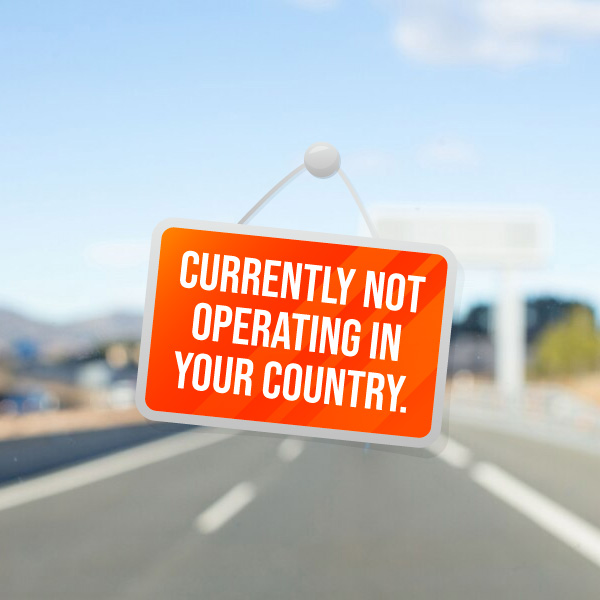If you are in your mid-twenties and have been brought up in Pakistan, you definitely remember the transportation struggles. If it is to travel to college or office, the main issue is to find a public bus or rikshaw. Taxi services were used to provide a reasonable commute, but people faced high fares challenges. The work was for half an hour but was prolonged to two hours because of finding a conveyance. In recent years, ride-sharing services have transformed how people travel in Pakistan. Commuting has become more convenient and efficient with the rise of different platforms and apps. This business has solved many problems.
This blog aims to delve into the numerous benefits of ride-sharing services in Pakistan and how they have positively impacted the lives of both passengers and drivers.
What Change Does Ridesharing Apps Have Made?
Ridesharing apps have significantly changed Pakistan, making transportation more convenient, safe, and accessible. They have provided economic opportunities, reduced dependency on personal vehicles, and introduced technological advancements in the transportation sector. Compared to traditional taxi services and public transport, online taxi services, better known as rideshare apps, have changed the whole system. We will discuss a few benefits of these apps on society.
Benefits To Consumer
The foremost advantage of these apps is that consumers. The convenience, accessibility, and affordability have made travel easier for the masses.
Convenience
Ride-sharing services offer unparalleled convenience to passengers. Gone are the days of standing on crowded streets, hailing taxis or rickshaws. With a few taps on a smartphone, users can easily request a ride from anywhere at any time. This level of convenience is especially beneficial in large cities like Karachi, Lahore, and Islamabad, where traffic congestion and limited parking spaces are major concerns.
Affordability
Ride-sharing services provide cost-effective transportation options for the general public. Traditional taxi fares can be subject to negotiation or fluctuate due to various factors. In contrast, ride-sharing services utilize upfront pricing, ensuring transparency and eliminating the need for negotiations. This pricing model, often lower than traditional taxis, allows users to plan their travel expenses more accurately. With more online taxi services in Karachi, the competition has increased, and fares remain low.
Safety & Security
Safety is a top priority for ride-sharing platforms. They have implemented stringent background checks and verification processes for their drivers, ensuring the safety and security of passengers. Additionally, these services maintain a digital record of every ride, including driver, vehicle, and trip route details, providing an added layer of security.
Reduced Dependency on Personal Vehicles
Ridesharing apps have contributed to a reduction in the dependency on personal vehicles in Pakistan. With convenient and affordable transportation options available at their fingertips, more people opt for ridesharing rather than owning and maintaining their own cars. This has led to a decrease in the number of private vehicles on the road, which helps alleviate traffic congestion and reduces the environmental impact of commuting. The availability of ridesharing services has encouraged a shift towards more sustainable transportation practices.
Impact On Society
Rideshare or carpool apps have not only benefited customers but also had a positive impact on society and the environment.
Improved Traffic Situation
Safety is a top priority for ride-sharing platforms. They have implemented stringent background checks and verification processes for their drivers, ensuring the safety and security of passengers. Additionally, these services maintain a digital record of every ride, including driver, vehicle, and trip route details, providing an added layer of security.
Fewer Carbon Emissions
Studies have shown that carpooling and ride-sharing can significantly reduce greenhouse gas emissions per passenger mile compared to single-occupancy vehicles. The collective effect of carpooling on a larger scale can lead to a substantial reduction in carbon footprints and contribute to mitigating climate change.
Job Creation and Economic Growth
The emergence of ride-sharing services has created new employment opportunities in Pakistan. Individuals with valid driver’s licenses and access to a vehicle can become drivers and earn a livelihood through these platforms. This has particularly empowered many individuals who were previously unemployed or had limited jobs. The growth of the ride-sharing industry has also stimulated the local economy by increasing spending and generating additional tax revenue.
Women Empowerment
One notable benefit of ride-sharing services in Pakistan is the empowerment of female drivers. Platforms like Uber and Careem have introduced initiatives encouraging women to become drivers, providing a safe and flexible work environment. This offers economic independence to women and contributes to gender equality and women’s empowerment in society.
Wrapping Up
Ride-sharing and carpooling apps have tremendously impacted society and the economy. Contributing to the country’s GDP through taxes and improving people’s living standards because of new job opportunities. Due to the increased number of ride service apps in the market, the choice of consumers has also now increased. Owning a car is now not a wise option compared to ride-hailing services.







Leave A Comment